racial justice
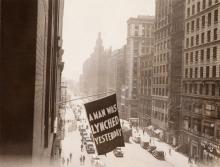
I’ve never been more scared for my Black son, but I knew this is what we had to do.
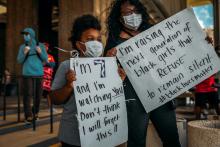
The phrase "Black Lives Matter," like Joseph’s request to take his bones wherever his people go, is to keep memory alive. To keep it alive is to fight for us when we can't fight for ourselves. It is to remind us that though our world may forget us, there is One who does not. So even as people shout loud “look how much progress this country has made; be grateful,” we understand that, as Angela Davis writes, “freedom is a constant struggle.”
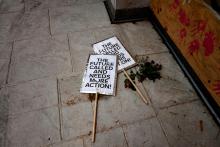
While many Americans, especially white Americans, expect the police to protect their privileges, they often criticize police for the tactics used to protect those privileges. While people should indeed be appalled by racialized police violence, racialized policed violence is actually a symptom of the underlying pandemic of racism — a socially constructed malady designed to protect white privilege.

That’s how fragile black life in the U.S. is. Our risk of being killed by police hinges on little things like the weather.

These types of failures in the voting process may become additional tools in the arsenal of voter suppression, and the Black community must be prepared.

White churches need to enter conversations of racial justice with sobriety.

Black people don’t always end up dead when encountering police. But we almost always end up wounded.
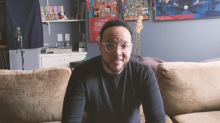
Black people have the most grace
You know why we insist that we strong
Cause for 400 years we have carried this weight
We got out okay
We are not okay
You are not okay
This is not okay
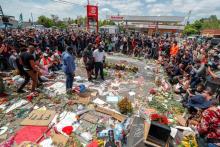
In Exodus, the Egyptians shed innocent blood. Then God made this blood visible for all to see.

COVID-19 is culling the herd of humanity. Beneath the conversation about herd immunity lies a silent and unstated conversation about who will survive. Why are black and brown communities being hit so hard? Why are we more likely than whites to die if admitted to the hospital? Who gets access to health care of any kind, and with regard to COVID-19, to inequitably distributed tests? Who gets a ventilator and who does not?
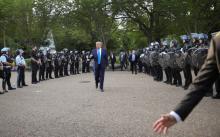
Last night, Donald Trump used and abused a church, and a Bible, as presidential props for a photo-op. In a violent and authoritarian act, the president of the United States took the space of a church and used a picture of a Bible to make a political move.

TO UNDERSTAND MY evolution as a reconciliation leader, you must first understand that I began my journey sincerely believing that if I could convince evangelical Christians that reconciliation was not some politically motivated agenda but a biblical calling rooted in Scripture, they would pursue racial justice. For years I tried to be biblical enough, nonthreatening enough, patient enough, persuasive enough, theologically rigorous enough, so that no one could say I had a hidden agenda.
That’s what my ministry was about for a very long time. I preached the good news of multiculturalism and diversity at churches and conferences. I led workshops and taught seminars and told people about inclusion and equity and how Jesus demonstrated these principles in his ministry.
But along the way, there were indicators that my approach, while good and well-intentioned, was not effecting the type of change I knew in my heart needed to take place.
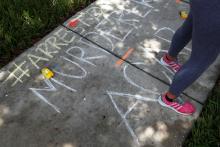
Derek Chauvin, the Minneapolis police officer who is seen on a bystander's cellphone video kneeling on George Floyd's neck on Monday, has been charged with third-degree murder in Floyd's death, according to Mike Freeman, Hennepin County attorney.
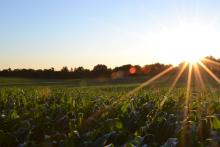
COVID-19 reveals the artificiality of the urban/rural divide.
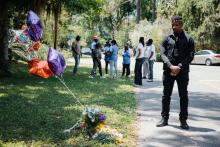
When will the lives of black people ever matter to America? Black people are tired.
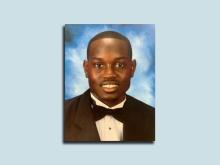
What value is there in circulating a depiction of innocent black death?
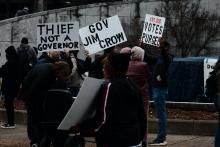
Governor Kemp's COVID-19 response, and the killing of Ahmaud Arbery, replay a longer history.

The overwhelming vote last week in the House of Representatives to designate lynching as a federal hate crime shows just how sluggish the pace of change can be in America.

All of them returned to the South’s frontline struggle for racial justice.
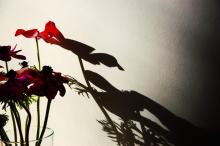
This is what slow death looks like for the families of victims of police brutality.